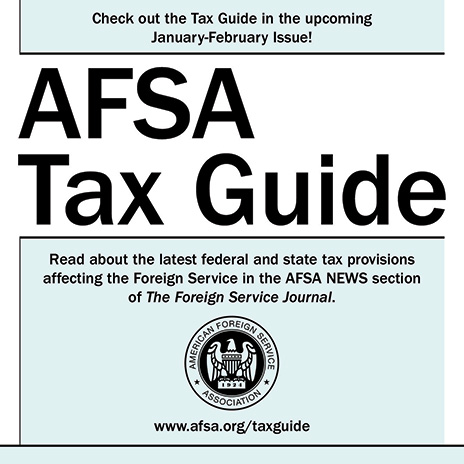From the FSJ Archives: The United States and Europe
During the mid-1960s, as tensions grew between the United States and Europe, many sought a re-evaluation and updating of trans-Atlantic ties.
BY JAMES A. RAMSEY
As a result of World War II and its disasters, the United States has for over 20 years been a participant on the European scene on a scale not before known in its history. During this time the Americans have established a strong military presence in the Western half of the continent and have actively influenced the defense, foreign and, to a certain extent, even the internal policies of most of the states in this area.
In retrospect, the development of an active American role in European affairs appears to have been both inevitable and necessary—inevitable because the Europeans managed their own affairs so badly that U.S. intervention was required to save the situation; and necessary, at least from the Americans’ point of view, in order that the security of their country should not again be threatened from that part of the world.
In the early postwar period, the U.S. presence on the European continent was generally taken for granted as a natural consequence of the most disastrous conflict in history. Even more, Americans were, with few exceptions, welcome there both as a stabilizing influence and for the economic resources they possessed. The strong Soviet challenge to the existing political and social order made the development of an effective counterforce appear more essential than ever, and the American presence was in time institutionalized through a military alliance and a series of other collaborative arrangements.
Until recently the relationships so created were accepted by most West Europeans as being in the natural order of things. Since the Soviet Union was generally less than accommodating toward its Western neighbors, the latter were only too glad to have the active support and assistance of a major power in their efforts to rebuild the political, economic and social structures shattered by the war.
This state of affairs is now undergoing a substantial transformation with changes occurring almost daily. The reasons for the changes are complex and range from certain resentment over U.S. predominance on the continent to uneasiness concerning the American stance on various world problems. The underlying cause, however, appears to be a desire on the part of all Europeans, both in West and East, to lead again a normal life free from the tensions and threats of cold and occasional hot wars.
Changes Afoot in Europe
In this picture of an order which the Europeans are now gropingly fashioning for themselves, the United States occupies a much less prominent place than it has been accustomed to assume in the past. In a sense this is only natural in that if the Europeans show competence in handling their own affairs, there is a reduced need for intervention by an outside power. But even more, it reflects a growing feeling of urgency on the part of the Europeans about putting their own house in order.
The desire of the Western Europeans for greater stability arises both from the abnormality of the circumstances created by the war and its aftermath, and from a growing realization that the United States no longer has the answers to the problems facing their continent. For many years, the U.S. position on vital issues affecting their countries was accepted without serious questioning by European leaders. In part this was based on a genuine mutuality of interests, and in part it was grounded in the hope that with perseverance backed by American power the division of the continent could one day be ended.
Such a hope has now become illusory. There is a growing feeling in Europe that the United States, by its lack of willingness to face facts in time, has been contributing not to the end but to the perpetuation of the hostile confrontation that divides the continent. Most Europeans now seem to consider, for example, that the recently abandoned U.S. attempts to foster greater military integration were out of step with changing historical conditions and served only to obstruct the evolution of a much-needed and desired detente.
It is in the field of politico-military affairs that the United States is facing its greatest difficulties in Europe. Having insisted for over a decade and a half on the indispensability of an American troop presence to guarantee European security and help bring about an eventual Cold War settlement, the United States now finds for a very mundane reason—to wit, lack of money—that this is not quite so essential as it seemed. And instead of working together with its allies in search of a solution to the East-West tangle, the United States has begun to talk about arrangements with the Russians while pressing the Europeans to make greater financial contributions to the maintenance of its defense establishment on their territory.
For many years, the U.S. position on vital issues affecting their countries was accepted without serious questioning by European leaders.
The results of this kind of maneuvering are predictable. As far as the Europeans are concerned, it will mean a lessening of confidence in the reliability of the United States as an ally and a more questioning attitude toward American ability to achieve the goals it has proclaimed for Europe. The Russians, for their part, may view these developments with equanimity, if not satisfaction, since they appear to be on the verge of achieving a long-standing objective— namely a U.S. troop withdrawal—without the necessity of giving up anything in return.
Although the United States can take small comfort from this situation, it may find that as a result of such tribulations its relationship with the Europeans will eventually be established on a sounder basis. The United States has become too closely involved on the European scene and is too much identified with certain groups of interests. Such involvement is neither desirable nor necessary. First of all, it calls forth latent resentments and leads to charges of meddling and interference. Secondly, while European and American interests frequently converge, this is not always the case, and each side should be free to pursue its affairs in whatever way is appropriate.
Rethinking the U.S. Role
Given the present constitution of the world, it would in fact be more satisfactory for the United States and Europe to have a less interdependent relationship. The U.S. economy is in some respects so volatile, and American political preoccupations in some parts of the world so intense, that a too-close integration could have serious consequences on both sides of the Atlantic. Ideally, one side should be able to come to the aid of the other in case of need, as the United States has done since 1945 and as Europe may be required to do in the not-toodistant future if present trends continue.
The European scene is currently characterized by so much diversity and inner vitality that it is difficult to see how, as a practical matter, the United States can continue to play the role of guardian it has assumed for the past 20 years. Not only is this becoming technically impossible, but it is also to a certain extent a self-defeating proposition from the point of view of achieving U.S. objectives in Europe. The United States must learn to be more detached, to be available for assistance and help if called upon rather than attempting, as it now so frequently does, to influence the course of events by interference and manipulation.
At the present time, the United States is much too emotionally involved in too many international conflicts and quarrels, both in Europe and elsewhere. American officials, wherever they are located, appear to have a compulsion to assume a stand on every troublesome issue, whether it concerns them directly or not. While such an approach is theoretically admirable, especially in light of the self-imposed U.S. mission for keeping the peace, the results often tum out to be meager in terms of time, effort and money spent.
As applied to the European political scene, the American attitude of compulsive neighborliness is coming to be less and less appreciated. From a purely practical or realpolitischer point of view, the United States has already passed the stage where its counsels are accepted on the basis of shared ideological convictions. Something more in the way of justification than the usual clichés about solidarity of “free world interests” is now required in order to present a credible position. Europeans are currently searching for pragmatic solutions to the problems that beset them, and American fundamentalism is considerably less attractive than it was at a time when continental affairs were hopelessly and uncompromisingly entangled in a maze of mutual recriminations.
A natural result of the lessened receptivity toward the American point of view on many policy issues is a growing lack of meaningful dialogue between the United States and its European allies. When American spokesmen try to make a case for concerted action on Cuba or Vietnam, such appeals find no response in countries to which they are at best matters of secondary concern.
Stay Ahead of History
Even more, there is in Europe a rising uneasiness over the lack of U.S. flexibility in dealing with so many vital questions. In this sense, General de Gaulle might be considered as the spokesman of a growing body of as yet largely inarticulate opinion in most European states which is disturbed over the course of events and favors the development of less binding associations with American power.
The future Europe may or may not conform to General de Gaulle’s vision of a collection of nation-states living in harmony from the Atlantic to the Urals. One thing can, however, now be said with certainty: the power of both the United States and the Soviet Union to influence the actions of individual countries on the continent and to make them conform to their respective models is rapidly decreasing.
It is up to the United States to recognize this change and to accept it gracefully. There is a lack of reality evident in waiting for certain uncomfortable phenomena to disappear from the scene so that one may return to the status quo ante. Once a country puts itself in this position it becomes retrograde and falls behind the course of events. In the long run, this constitutes a situation which no amount of power can hope to rectify. If the United States is to avoid such an entrapment, it must keep pace with history or, better still, stay a little ahead of it.








